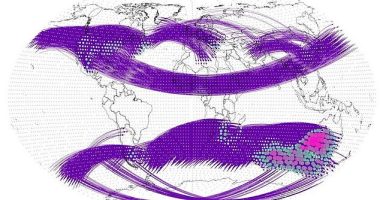.jpg)

It’s a perennial question at WIRED: Tech got us into this mess, can it get us out? That’s particularly true when it comes to climate change. As the weather becomes more extreme and unpredictable, there are hopes that artificial intelligence—that other existential threat—might be part of the solution.
DeepMind, the Google-owned artificial intelligence lab, has been using its AI expertise to tackle the climate change problem in three different ways, as Sims Witherspoon, DeepMind’s climate action lead, explained in an interview ahead of her talk at WIRED Impact in London on November 21. This conversation has been edited for clarity and length.
WIRED: How can AI help us tackle climate change?
Sims Witherspoon: There are lots of ways we can slice the answer. AI can help us in mitigation. It can help us in adaptation. It can help us with addressing loss and damage. It can help us in biodiversity and ecology and much more. But I think one of the ways that makes it more tangible for most people is to talk about it through the lens of AI’s strengths.
I think of it in three parts: First and foremost, AI can help us understand climate change and the problems that we face related to climate change through better models for prediction and monitoring. One example is our work on precipitation nowcasting—so, forecasting rain a few hours ahead—and our models were voted more useful and more accurate than other methods by Met Office forecasters, which is great.
But it’s also just the start because you can then build to predict much more complex phenomena. So AI can be a really significant tool in helping us understand climate change as a problem.
What’s the second thing?
The second bucket that I like to think about is the fact that AI can help us optimize current systems and existing infrastructure. It’s not enough to start building new green technology for a more sustainable tomorrow, life needs to go on—we already have many systems that we rely on today, and we can’t just burn them all down and start from scratch. We need to be able to optimize those existing systems and infrastructure, and AI is one of the tools that we can use to do this.









